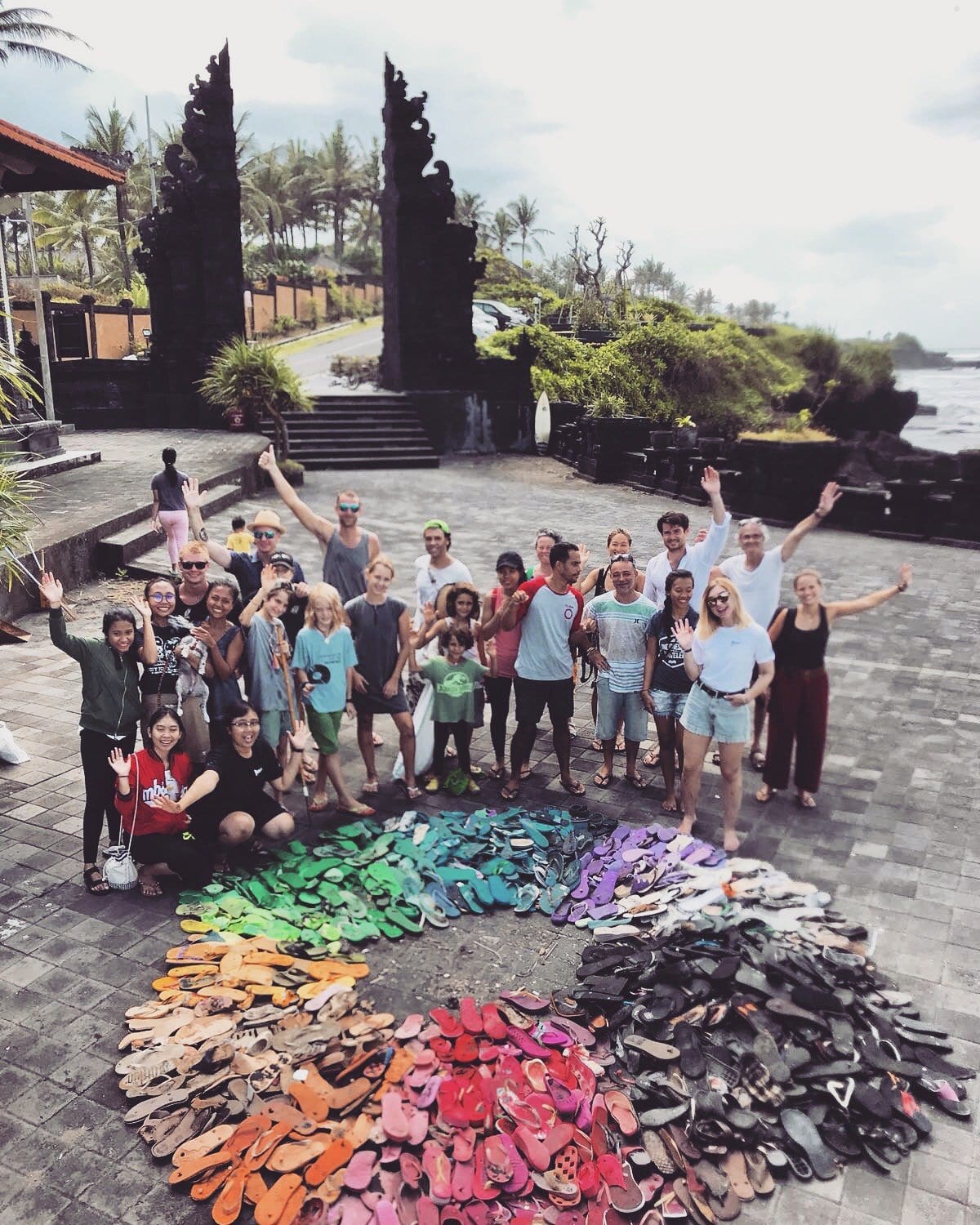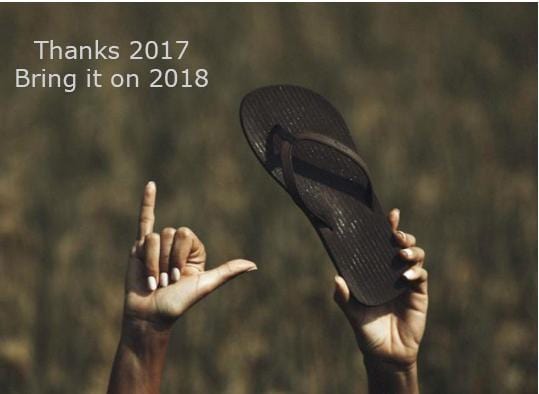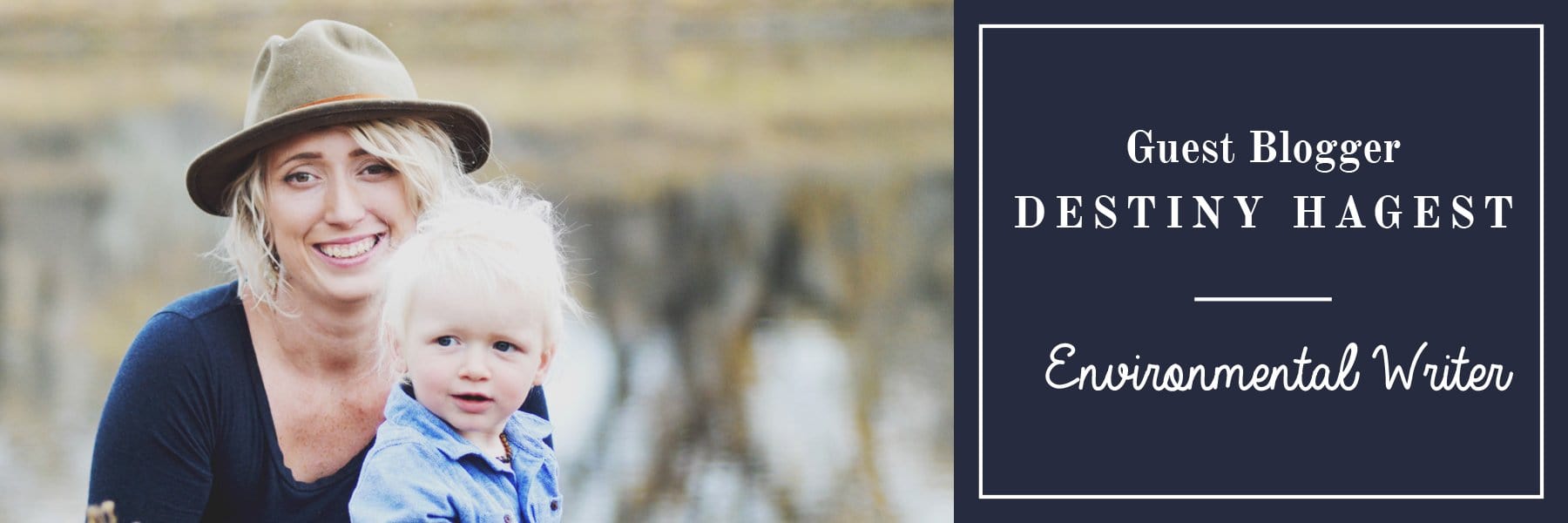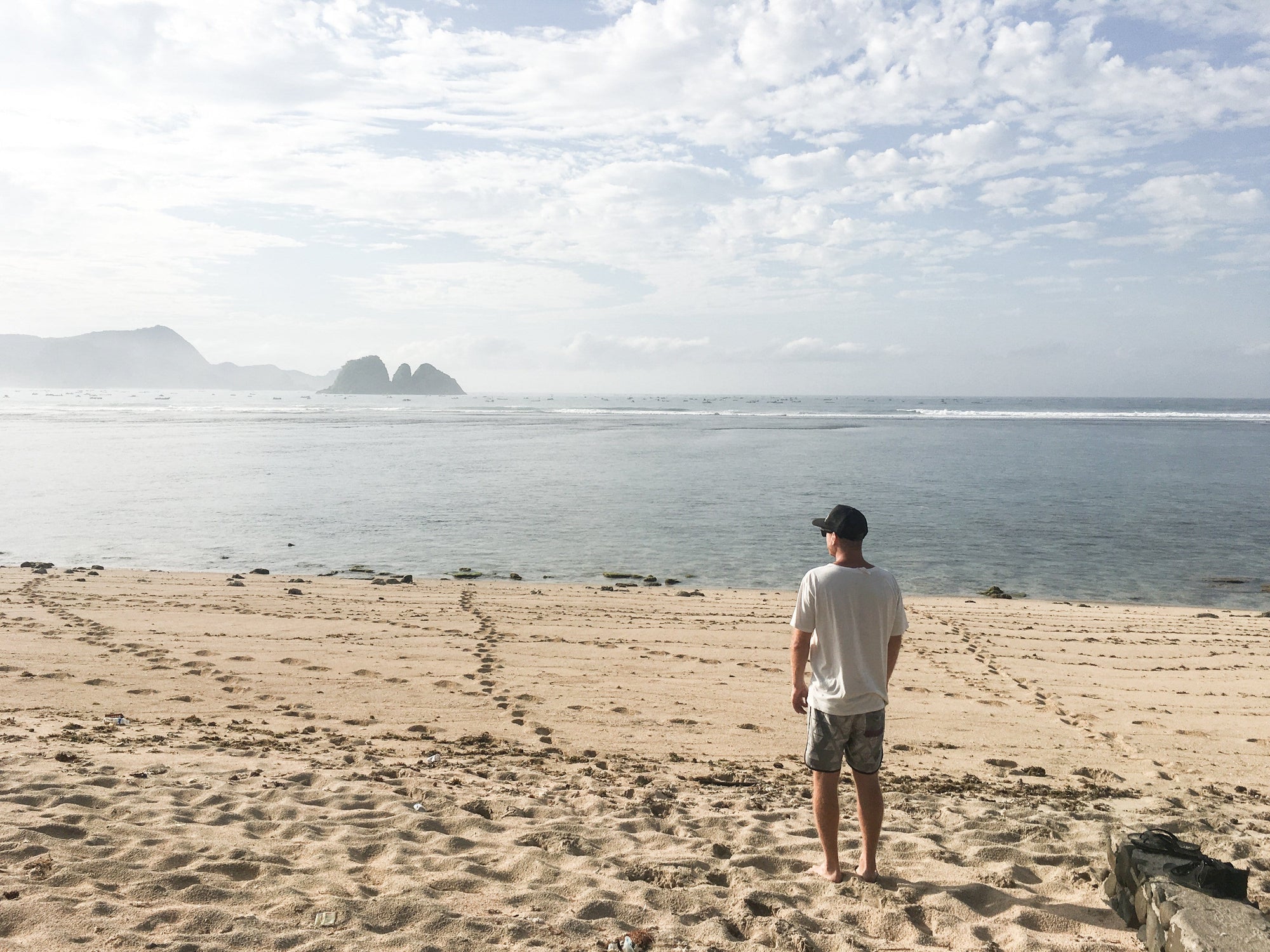Indosole Blog & News

Bali
Bali's Biggest Beach Cleanup 2018
One Island One Voice / Satu Pulau Satu Suara organizes
BALI'S BIGGEST CLEAN-UP
February 24th 2018
On February 24th the island came together for a truly amazing event in Bali’s history. Lead by local heroes, Isabel and Melati and the Bye Bye Plastic Bags org. Coordinated a deep crew of locals and ex-pats young and old who mobilized to clean surface waste from local beaches and villages.
From our perspective here at Indosole, we are so happy to be a part of this development. We have been living in Canggu since 2009 and witnessed a trash problem in Bali well before then. For years, there have been very few people making effort to address the problem. We have chipped in what we can, but it has never been enough to make a big impact.
We are thankful of the effort and execution by the Bye Bye Plastic Bags crew / One Island One Voice and now looking forward to having us collectively focus on the solutions that are being made vs. the problems that are so obvious in Indonesia.
We have a long way to go but together we can make a difference every day.
Here are the stats on Bali’s biggest clean-up 2018:
15,000+ people
60 locations island wide
50+ tons of waste collected
WHERE DID THE TRASH GO?
Eco Bali Recycle Station
Merah Putih Hijau
Role Foundation
Depo Cemara
Kembali - Bank Sampah
Temesi Recycling
DLHK
Rumah Kompos Padang Tegal
Adventure
Conde Naste Gold List Member 2018
When we heard from Conde Naste with selection as a Gold List candidate we leapt with joy and then grabbed our best pair of Indos, packed our bags, and took off....

Bali
Thanks 2017 - Bring it on 2018
On January 01, 2017 we awoke with a realization that Indosole needed a face lift, a brand elevation, a breath of fresh air if you will. So, we decided to slow down and take a look around by analyzing the market and what the average consumer actually wants in year 2017.
What we found was that sustainable fashion and vegan goods are getting popular, very popular. But we also found that people do not necessarily want to step outside their comfort zone unless they can perceive a real value and style upgrade along the way to justify spending hard earned money. Well, truthfully we have observed this dilemma for years. So, we decided we needed to shock the system, dig deep, and conceptualize a new product that would have us continue to raise the bar in our market while offering our customer a comfortable, affordable, and easy product they can relate to in their everyday lives. We wanted to create a legacy product for our brand and also for the future of the conscious footwear market.
The idea for “The most ECOnomical Flip Flop in the world” shone through when we decided on our new product, The ESSNTLS. However daunting, we looked down the barrel of 8 months of hard work to get this product to market, but knew that it would be well worth it if we could check all the boxes and follow our brand ethos of responsible sourcing and manufacturing along the way. Holding this commitment kept us faithful through the slogging months and had us believe that the ESSNTLS will be special and will positively influence our industry and world.
We followed a 3 phase process to take: Concept - To Action - To Your Feet:
Here we are at the end of 2017 having worked nearly a FULL year on this product. ESSNTLS have been on the market for 3 full months and the response has been phenomenal as we begin the next phase. We have some exciting announcements coming soon!
What is the next phase you may ask??! EXECUTION in 2018 is our answer. For us, you, Indonesia, and the rest of the world.
Thanks for your support in 2017 and enjoy our highlight photos from this past year:
Love,
The Indosole Crew
Bali
New Release!
Meet your new favorite slip-on Travel Shoe, The Pantai. We are proud to introduce this shoe to you and we have a good feeling that you are going to like it….a lot.
A year ago, we had a vision for Indosole’s version of the classic Espadrille. Market research lead us to believe that most of the Espadrille’s on the current market were lacking some key elements: Comfort, Arch Support, and Machine Washability. We wanted to offer a solution, we wanted to make a better shoe and do it while following the brand ethos that Indosole is known for: Responsible processes and materials, style, and function.
Now, after months of focused design and development we are happy to unveil our latest creation: The Pantai Travel Shoe.
The Pantai is 100% vegan and made with organic canvas that is sourced locally and then custom dyed using natural processes. It is then finished with Indosole’s signature upcycled tire soles and ready for all your wild adventures.
LEARN MORE AND BUY NOW

conscious consumerism
Eco Friendly and Affordable: It’s Happening
As Americans generate 230 million tons of trash per year, as 8 million tons of plastic winds up in the ocean every year, and as 600,000 tons of pesticides get used every year in the US to saturate cotton crops, one thing is clear — what we buy as consumers is having a direct impact on our planet.
It’s a reality that makes us all look at our feet in shame, want to shake our fists at the atrocities committed by businesses behind closed doors, and just want to do something about it all.
But it’s maddening, because all too often, the eco-friendly options on the market are just too freaking expensive for the average person to go out and buy. Unless you’re set with a swanky salary and stock options, organic underwear and fair-trade coffee just isn’t in the cards.
We want to make a difference, we want to empower ourselves with better purchases that are kinder to the planet and support businesses that are putting planet above profits, but how do we do it if we can’t afford what they’re selling? Finally, the market is actually listening.
Affordable eco-friendly fair-trade is bursting onto the scene like never before, and the prices are coming down. It’s not everything, and it’s not everywhere, but these businesses have seen the writing on the wall and are offering products that we can all actually afford.
Why Eco-Friendly Costs More
Even more frustrating than knowing the impacts of conventional manufacturing is not being able to choose otherwise because you just can’t afford to. The bottom line is, eco-friendly products cost more because often they just take more time and labor to produce. You’re not creating a fiber out of petroleum stew, you’re growing it in a field, and you’re not sucking the local aquifers down with crummy farming practices to make them grow faster.
Organic, free-range, sustainable, free-trade — all of these things reflect the real cost of a product:
• What it takes to pay the people who make these things fair wages.
• What it takes to grow things slower, the way nature intended.
• What it takes to use wholesome ingredients, instead of synthetic junk.
These companies put so much more on the line financially than just what goes into their products too, putting money into getting the certifications that prove to their customers that they’re putting people and planet above profits. B-corp and fair-trade? It all costs money to get those certifications, but these companies go for it anyway.
I know it’s frustrating, I know you just want some organic sheets AND to pay your rent on time, but trust me, there are some really great reasons you’re paying more for eco-friendly, and some really sad reasons you’re paying less for the conventional stuff.
Businesses That Are Changing the Game
Okay, all of that doom and gloom aside, there are businesses that see this problem, and despite all of the things that make it so challenging to compete with cheap, inferior products, they’re working their tails off to make it so we can actually buy from them.
These businesses have prices that are surprisingly lower than what you’re used to seeing from eco-friendly retailers, so pace yourself — it’s only affordable if you don’t go on a shopping spree.
Mattresses
Avocado Green Mattress
I’m having a personal love affair with this mattress company. Their mattresses are INCREDIBLE, made from organic cotton, wool, and even recycled steel springs, and they’re 100% polyurethane-free (which is like, insanely unheard of).
>The crazy part? A queen-sized mattress from Avocado is just $1,399, about the same as something you’d get from Serta.
Shoes
Indosole
This shoe company has decided to make use of tire waste in one of the coolest ways possible — by turning it into eco-friendly shoes that rock and roll. Indosole carries sandals, flats, urban walking shoes, and flip flops, all made with upcycled tires by people paid a living wage in safe facilities.
Their latest release, the ESSNTLS, are their most affordable yet, at just $35 a pair with free shipping within the US.
Clothes
PACT Apparel
PACT has taken the internet by storm with their comfortable collection of organic cotton basics that are as versatile as they are comfortable. With everything from underwear to kids’ clothing, this company offers a solution to the environmental catastrophe that is conventional cotton, at prices accessible to the rest of us.
Get it all here — a long sleeve women’s tee from PACT is only $16.99.
Home Goods
Lehman’s
I’ve raved about this store before, and I’m shamelessly at it again. For those of you living a rugged life (or maybe just wanting to try your hand at home fermentation), this store has it ALL, and so many of their products are made with materials like wood and metal, right here in the US.
Built to last is built for the planet, and Lehman’s has it all. Get their lamb’s wool dust mop for just $24.99!
Clothes
H&M
I know, you’d never expect to see this fashion giant on a list of green brands, but believe it or not, H&M is the world’s largest buyer of organic cotton! From maternity clothes to menswear, H&M carries an impressively large line of fashion-forward organic and consciously produced products.
Me? I’ve got my eye on these sweet organic cotton maternity leggings — just $12.99 a pair!
Clothes, Home, Electronics, Pets, and Jewelry
Overstock
When you’re on a budget, sometimes these big box stores are your friend, and you can feel good about it because SO many of them are carrying eco-friendly options these days. Overstock carries a huge range of products, but they have a particularly nice selection of organic bedding at some great prices.
Check it out — these organic cotton sheet sets are priced at under $85 for a queen-sized set!
Bed, Bath, and Home
Under the Canopy
When it comes to sheets, linens, and rugs, Under the Canopy is another great one to shop around on. Their mantra is ‘Beautiful. Sustainable. Affordable.’, and they live up to it well. With six kinds of certifications that showcase this company’s commitment to planet over profits, Under the Canopy just raised the bar a little higher for everyone.
You can get an organic cotton towel set from these guys for $64.99!
Kids’ Dishes
Re-Play
One of my favorite companies, this business makes use of plastic milk jugs by turning them into durable dishes for kids. Re-Play’s dishes tough and built to last, but also free of BPA, PVC, and phthalates, and shipped with minimal packaging. They’re even made in the USA!
At just $18 for a six pack of their plates too, these dishes are crazy affordable!
Toys
Green Toys
Another company recycling plastic waste in the US, Green Toys makes a wide variety of tough toys that are 100% safe and non-toxic, and even packaged in biodegradable boxes printed with soy ink!
Ready to try one? These toys last forever, and you can nab a whole recycling truckfor under $30!
Epic and Eco-Friendly
It’s challenging being a conscious consumer on a budget, no doubt. But the tides are turning, and the world is wising up to the idea that to make eco-friendly options truly sustainable, they’ve gotta be affordable.
Don’t despair, and you sure as hell better not give up, because left and right, businesses are finding ways to compete with lower prices without compromising their values.
As a culture, we can all turn our consumer habits down a notch, but as an economy, we can move forward in a sustainable way to support businesses that are meeting us in the middle, and not compromising the health of our home sweet home to do it.
Guest Environmental Writer: Destiny Hagest

Each color represents an element that we aim to protect
The Indosole journey has taught us a lot. At the beginning, we did not know how to make sandals, we've slowly learned how to do that and are still learning more every day.
Next, the pollution problem that faces the country of Indonesia is one that fascinates us on all levels. This issue effects the health of humans, animals, and earth but also within our supply chain. As we dug deeper into our business we discovered just how toxic the manufacturing industry in Asia is and how we can help. Overall, the harms of humankind can be felt in all areas and its up to all of us to conserve and protect the things that keep us all active and smiling.
We focused in on some popular pollution points that are negatively effecting Indonesia right now and how they relate to our lives and happiness:
Tires: We wanted to learn more about the effects of waste tires on our environment and this enlightened us to the real problems that tires cause for the land. For example: When they are burned, oils will leach out into the air and soak into the ground. Very toxic!
Plastics: Clearly one of the biggest issues facing our environment, animals, and land. Water bottles, bags, snack wrappers, and toys. Clogging up our oceans and waterways
Palm Oil and Deforestation: Causing massive destruction and pushing animals out of their homes and into extinction. Harming our food supplies and the farming industry.
Destructive mining practices: Intensive mining for coal has led to the pollution of rivers and rice paddies which works its way into our food supply and thus our blood streams.
The list goes on and on and we are all constantly overloaded with statistics and negative vibes regarding pollution. So, with our new line: The ESSNTLS, our goal is to break it down in simpler and digestible terms by looking at our earth through another lens and as guardians. We wrote down a list of the natural elements that give us pleasure and how we can advocate for their protection through our brand and products.
In the end, we have 5 new colors representing these natural elements and we hope you will join us in the protection of them for years to come and will be reminded of your contribution with every step you take in your new ESSNTLS.

The world's most ECOnomical flip flop has arrived!
Meet your new favorite flip flops
Over the past 10 months, we have been focused on developing the perfect sandal. It started with sourcing the most responsible materials. Then, drawing it out, and ripping it up and drawing it again. Then, we developed and wear tested for comfort and durability. Tried to break them, broke them, and went back and fixed them.
We hope you are as excited as we are about this new product release. Our team has come together and focused hard through all phases of this project and we truly believe this is the best product we have ever made.
ESSNTLS are ready for all your wild adventures!
PRE-SALE IS NOW LIVE:
Learn more about ESSNTLS and BUY now for $35 including shipping and delivery within 30 days.
The Most ECOnomical Flip Flop in the World
We believe that responsibly crafted footwear featuring natural materials, extreme comfort, and dynamic design should not have to break your bank. It has become our goal to provide a stylish flip flop that everyone can wear. ESSNTLS are supportive for men and sleek for the female foot, and comes in 6 colors. Each color is inspired by nature and is representative of the essential earth elements that we aim to protect from humankind.
Minerals, Shore, Leaf, Soil, Granite, Night
Enjoy your new Indos and Thanks for all your love and support,
Indo Crew

Turning #PlasticFreeJuly Into Everyday Way of Life
Together We’re #PlasticFreeJuly Everyday
#PlasticFreeJuly sets out to be the month where consumers like you and us refuse single-use plastic. The aim is to make this a year round habit. Recently, we caught up with the people who are making the planet plastic-free; Carolynn Box from 5 Gyres as well as Melati and Isabel Wijsen from Bye Bye Plastic Bags (BBPB). We will also share five ways to get rid off single-use plastic in our lives.
1. Hi Guys! Please tell our readers about your mission?
BBPB: It is a youth driven NGO with the mission to say no to plastic bags. We started 5 years ago and as of now we’ve created an educational booklet, reached out to over 16,000 students in 12 countries. Additionally, we’re working hard with local government to make Bali plastic-free by 2018. Bye Bye Plastic Bags is not just about the environment, it also wants more youths involved in creating change.
Isabel and Melati Wijsen Credit: Andrew Wyton
5 Gyers: 5 Gyres is non-profit organization based in Los Angeles, California, with a global network of supporters dedicated to a planet free of plastic pollution. Our mission is to empower action against the global health crisis of plastic pollution through science, art, education, and adventure.
Carolynn throwing in the trawls collect samples and analyze the findings in the ocean
What does going plastic-free mean to you?
BBPB: Going plastic free means changing our mindset, subsequently, lifestyle towards a more sustainable life cycle. It’s not impossible, but it definitely isn’t easy - especially when we live in a world driven by consumerism. That is why we believe in starting with the most essential step: refusing plastic bag and making a difference with one bag at a time.
The Bye Bye Plastic Bags Crew!
5 Gyres: To us, going plastic-free means that you choose plastic alternatives - plain and simple. Since plastic is everywhere, we really encourage people to focus on the single-use plastic items first and to take steps reducing its usage. It is almost impossible to go completely plastic free these days but there are people out there trying their best to live a life free of plastic!
5 Gyres Team having fun and showing the over use of single plastic bags
What is your goal for our world?
BBPB: The initiative is the manifestation of youth empowerment and it has really caught our passion. Our goal is to ensure that each and every young person knows their own power to bring change to the world. We hope to inspire youth to find that ONE thing they are truly passionate about and go for it! And through this, we believe that our goal and vision for a better, cleaner, greener world will happen.
5 Gyres: 5 Gyres is ultimately working towards a planet free of plastic pollution.
Thanks for your time guys, we are so inspired by what you do. Thank you!
Bye Bye Plastic Bags and 5 Gyres are doing all they can to reduce plastic in our planet. Here’s what you can do:
Refuse straws at eatery (Alternative: Reusable metal/glass/bamboo straws)
Straws are one of the most littered items picked up during beach cleanups. We should refuse plastic straw by bringing our own reusable straws. Or just don’t use straws :)
Bring your own cutlery (Alternative: Bamboo cutleries)
Always on the go? Grab your own cutleries. Bamboo cutleries are hygienic, reusable and light!
Bring your own cup
Disposable cups is one of the biggest pollutant in our environment. Production and recycling of disposable cups are not energy efficient. Bringing your cup surely is efficient.
Bring your own shopping bags
Pretty sure we have reusable cloth bags lying around in our homes. Bring them with you wherever you go shopping.
Stop buying bottled water
More than 480 billion plastic drinking bottles were sold in 2016 across the world and only 7% of those collected were turned into new bottles. One way to reduce it from landfill, bring your own refillable water bottle.
Don’t forget to be updated with Bye Bye Plastic Bags, and 5 Gyres initiatives here:
5 Gyres Facebook 5 Gyres Instagram 5 Gyres Twitter
BBPB Facebook BBPB Instagram BBPB Twitter

activism
We’re with nature, Happy #WorldEnvironmentDay2017!
Being located in Indonesia and Northern California, we are fortunate enough to be surrounded by some of worlds most beautiful cultures and climates. With Indonesia’s booming influx of tourism, as well as an outdated awareness of waste reduction, the amount of litter and lack of reusable resources/recycling, the quick deterioration of its beauty is easily apparent.
In light of #WorldEnvironmentDay2017 theme: “Connecting people to nature”, we challenge you to find fun and exciting ways to experience and cherish the places you love. As the landscape and people of Bali has captivated us so much that we set out to save 1 million tires from burning by transforming discarded tires into soles. So far succeeded in saving over fifty thousand tires from the flames, we are well on our way. To us, Bali & California are places those special places that matter. We feel a strong social responsibility towards protecting these amazing places we call home.
We love hearing about your favorite places! Show us your place that matters this #WorldEnvironmentDay!


